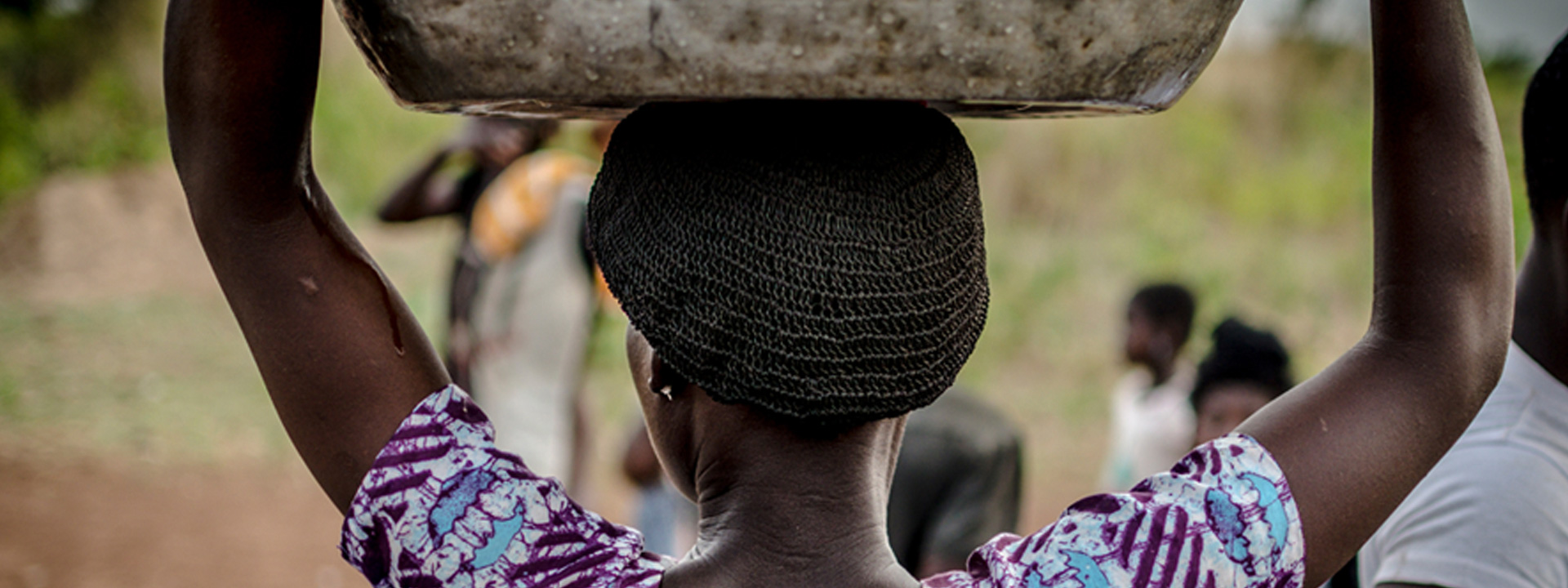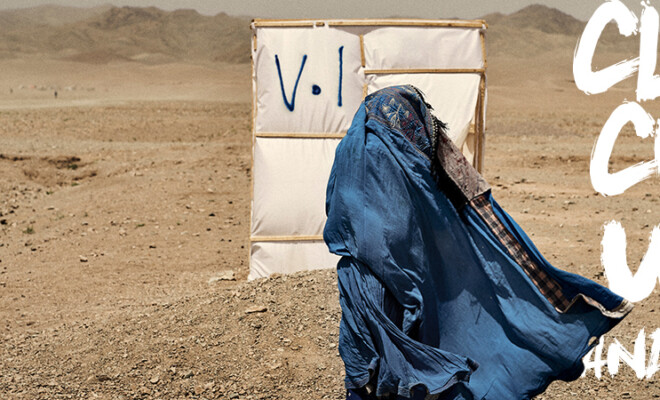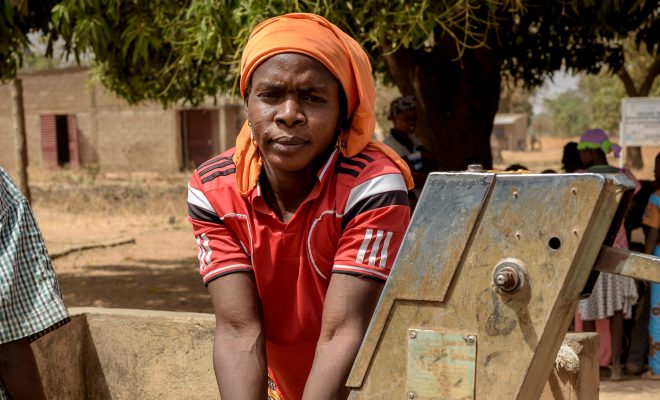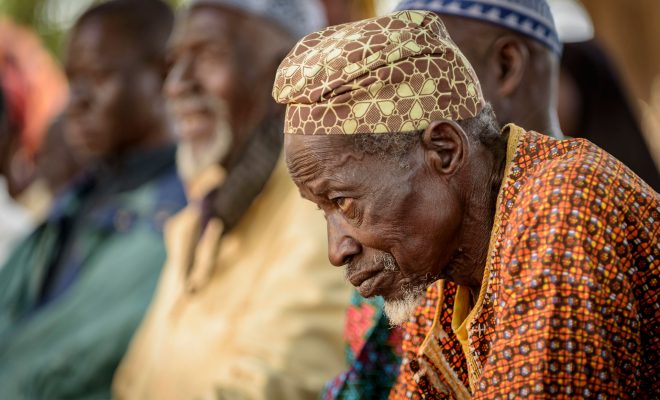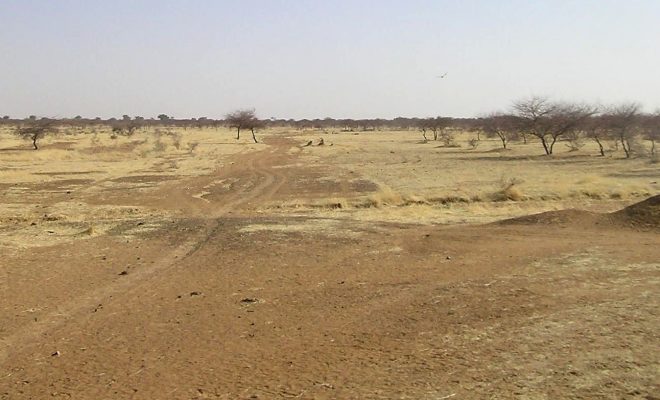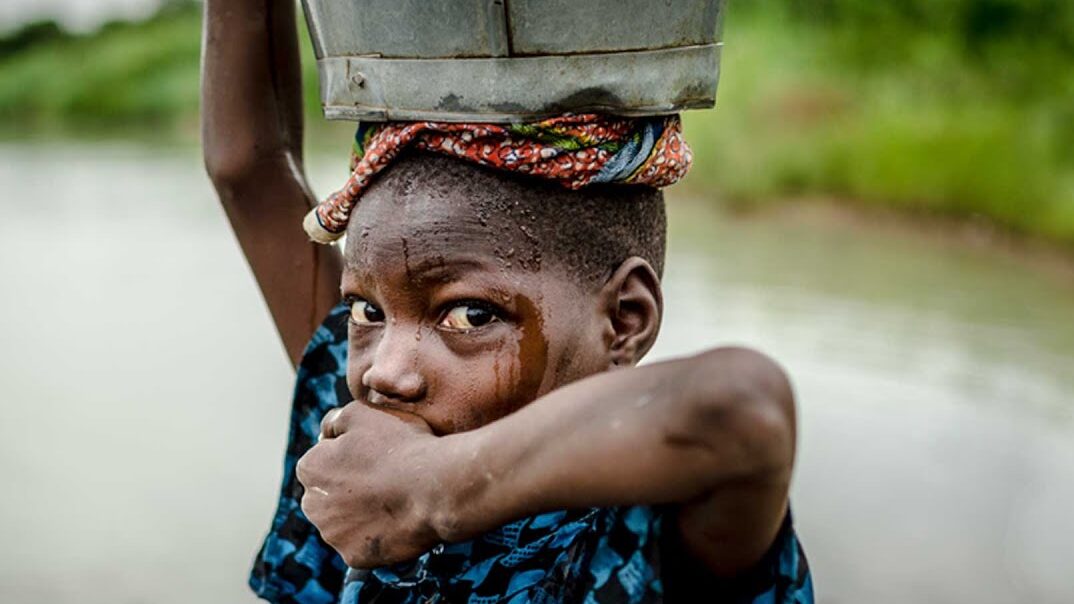
South Sudan ranks seventh in the world in terms of flood risk; its government is developing strategies to prevent flood damage to the Nile basin and harness the water to boost its agriculture, which has been underdeveloped by the endemic violence the country has suffered since independence. However, just 80 km east of its green border with Ethiopia, in the semi-desert Horn of Africa, 26 million people are suffering from extreme hunger due to an intense and prolonged drought.
Such contrasts are covered in the Annual Report 2023 – Water Knows No Boundaries: For a Climate-Resilient and Peaceful Africa, a World Bank document that provides a detailed review of international actions in favor of access to water and their decisive role in the peacemaking of a socially convulsed continent. In Africa, 1.5 billion people are facing climate change with few resources.
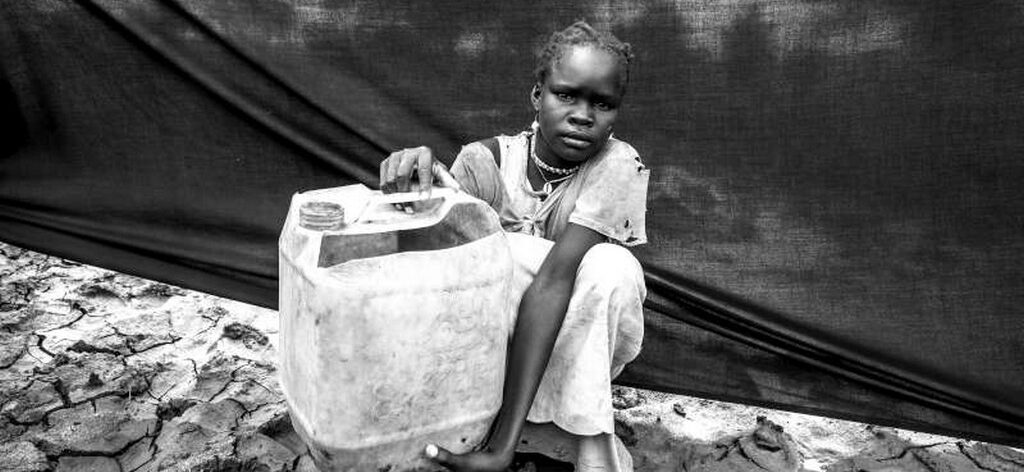
Nowhere is the vulnerability caused by the lack of access to water more evident than in Africa. © ACNUR/ B. Sokol
Since gaining independence from colonial rule, the continent has consistently prioritized regional integration in both political and economic aspects. The United Nations emphasizes the need to prevent water stress and the escalating impact of natural disasters due to climate change from hindering progress toward this goal. This is especially necessary in sub-Saharan Africa, which has a population of more than 1 billion, half of which will be under 25 by 2050. The current situation is concerning: the economic growth in sub-Saharan Africa dropped from 4.1% in 2021 to 3.6% in 2022. The World Bank predicts a further slowdown, estimating that economic activity in the region will decrease to 3.1% when considering the financial year 2023.
Four water regions on which the world stability depends
In the report, the World Bank considers four significant areas: West and Central Africa, East Africa, Horn of Africa, and Southern Africa. It analyzes the state of access to water, the climate and energy crisis, and the level of conflict in each region from the perspective of the need for cooperation on water sharing.
Of the four regions, West and Central Africa is the one with the most accumulated problems. It consists mainly of the Sahel countries, with the addition of Togo, Côte d’Ivoire, Ghana, countries bordering the Atlantic, northern Nigeria, and the Central African Republic. This is where the world’s greatest poverty is concentrated, with more than 40% of people living below the threshold of US$1.90 a day. It is a vast area that includes about 20 transboundary basins, some of which are among the largest on the continent, such as those of the Senegal, Niger, Volta and Gambia rivers and Lake Chad.
A quarter of these countries are experiencing violent conflicts and the scourge of Islamic terrorism, with hotspots in the interior of Mali and much of Burkina Faso. The recent coup d’état in Niger has added further uncertainty to an area where the growing dispute over water resources is a source of local unrest and cross-border tensions.
Groundwater and transhumance: the fragility of the Sahel countryside
In this context, the World Bank explains how the lack of water and the poor quality of parched pastures are at the root of rural crises and one of the leading causes of fragility in the Sahel and is recognized as a hotspot of exposure to climate change. It notes that the lack of proper groundwater management can have irreversible consequences for groundwater-dependent ecosystems and trigger climate and social tipping points.
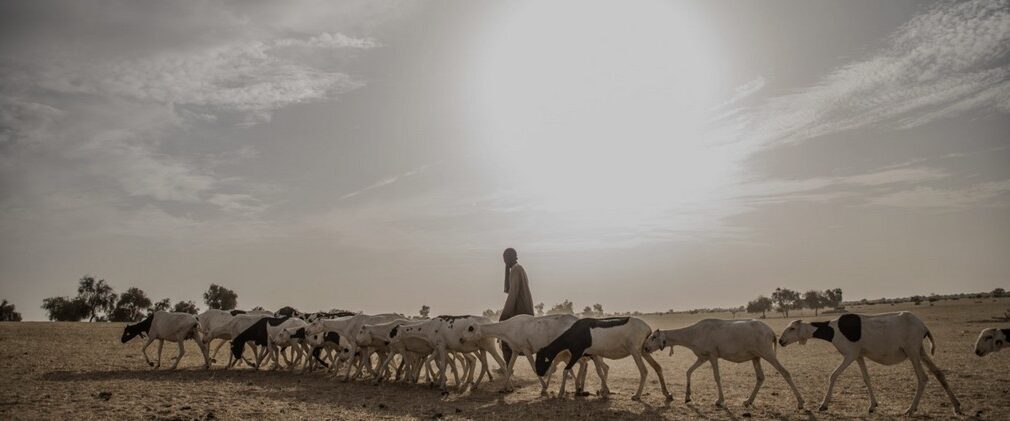
Tensions between sedentary farmers and transhumant livestock herders are endemic in the Sahel and many areas of the world, and climate change is expected to increase them. © Vincent Tremeau, World Bank
The great famines of the 1980s revealed the bad practices carried out in the area until then. During rainy periods, governments encouraged increasing grazing and agriculture, which caused systematic overexploitation of the land far beyond its average capacity to provide water and pasture. This is what ecologists call the decoupling of ecological systems. This phenomenon appears with the return of the drought period and increased losses and indebtedness of farmers whose subsistence was based on an unsustainable model.
Tensions between sedentary farmers and transhumant livestock herders are endemic in the Sahel and many areas of the world, and climate change is expected to increase them. Understanding these variables is critical to proper management.
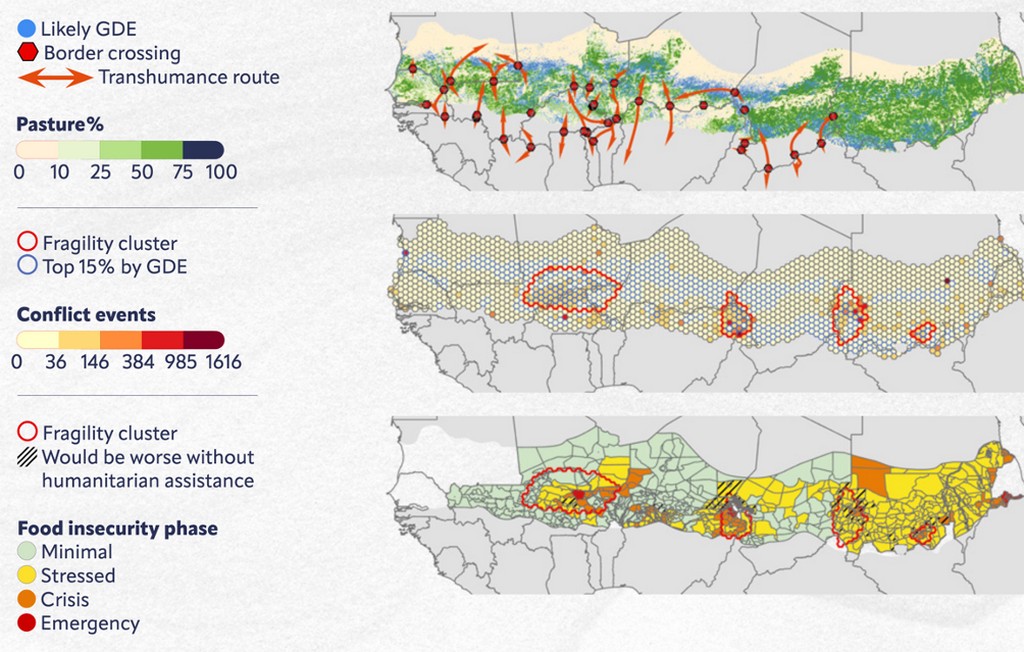
Maps obtained from an artificial intelligence-enhanced dataset of groundwater-dependent ecosystems and their relationship to (from top to bottom) pasture density and transhumant routes of herders (red arrows), areas of violent conflict, and areas of food insecurity. © Rodella, Aude-Sophie, Esha Zaveri, and François Bertone. 2023. “The Hidden Wealth of Nations: The Economics of Groundwater in Times of Climate Change.” Executive Summary. World Bank.
Recent advances in artificial intelligence have made it possible to map the areas where soil moisture and aquifers, factors that determine the quality of pastures and agriculture, define the so-called “groundwater-dependent ecosystems” (GDE).
The maps below show us that the GDEs are at the crossroads of migratory routes and social and food fragility hotspots in the Sahel region. This information is essential for designing integrated policies and deciding to avoid unintended consequences. Everything is interrelated; maintaining a systemic vision is vital.
Women, agents of shared water management
The entire region’s progress depends on ensuring that disruptions in the water cycle do not destabilize communities, which must be resilient and know how to manage water resources properly. To this end, a participatory spirit that brings people together and transcends local and international boundaries is essential. The World Bank notes that the full participation of women is imperative, but the Sahel has the highest levels of gender inequality in the world.
Senegalese economist Abdoulaye Mar Dieye, the UN special coordinator for development in the Sahel, recently pointed out that the liberation and progress of the large sub-Saharan strip require the freedom of its girls and adolescents, who are prisoners of genital mutilation, early marriage, and exclusion from school or development processes.
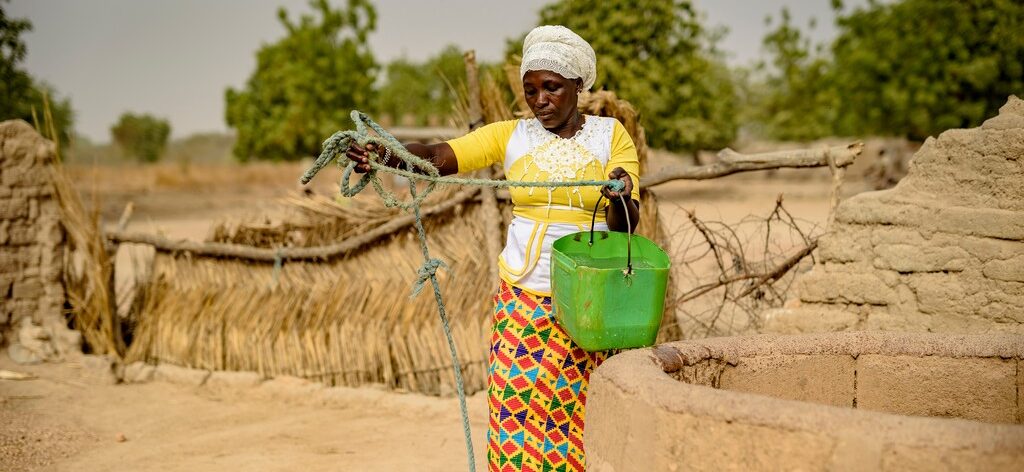
The World Bank notes that the full participation of women is imperative, but the Sahel has the highest levels of gender inequality in the world. © Carlos Garriga / WAWF
No path towards sustainability is possible if women are not at the center of the action, liberated from the injustices that oppress them. Women have the most extraordinary capacity for social structuring and managing a community asset such as water. Our experience in Burkina Faso, Ghana, Côte d’Ivoire, Sierra Leone, Mauritania, Guinea Bissau, and Chad has allowed us to prove that the sustainability of access to water and sanitation depends on the training of women in the management of each project and the maintenance of the facilities.
Europe’s new advanced frontier
“The security of the Sahel is Europe’s security; it is its new advanced frontier,” declared former EU High Representative for the Sahel and current Spanish Ambassador to Iran, Ángel Losada, in 2021. Traditionally, the European attitude towards the area has been based on international cooperation for development and aid in peacekeeping, with the priority goal of stemming the migratory wave. But it is clear that more needs to be done.
Sub-Saharan Africa is experiencing extraordinary demographic growth and the precariousness of its young people, with no other way out than informal work. This is one of the leading causes of migration to Europe, the main objective of those seeking a better life.
Increasing the sustainable management of groundwater and river basins is vital to socio-economic development and the basis for building a balanced future for Africa, Europe, and the world.


